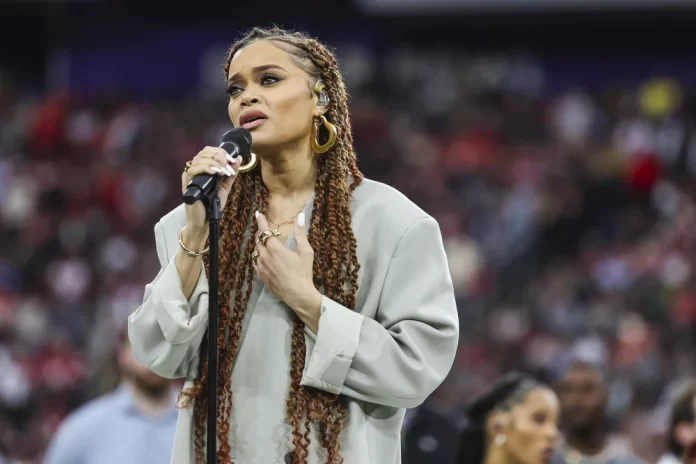Controversy Surrounds Super Bowl Performance of “Lift Every Voice and Sing”
For the fifth consecutive year, the Super Bowl will feature a performance of “Lift Every Voice and Sing” during the pregame ceremony. However, the song, long recognized as the Black national anthem, continues to be a flashpoint for controversy. Critics, including Rep. Lauren Boebert, have taken to social media to argue that there should be “ONE NATIONAL ANTHEM.” Some opponents have labeled the song “racist and divisive,” while others claim it fuels racial division rather than unity.
America only has ONE NATIONAL ANTHEM.
— Lauren Boebert (@laurenboebert) February 12, 2023
Why is the NFL trying to divide us by playing multiple!?
Do football, not wokeness.
A Cultural and Political Backdrop
This year’s performance by Grammy-winning singer Ledisi takes place in an era of shifting attitudes toward diversity, equity, and inclusion (DEI) initiatives. Former President Donald Trump’s return to office has led to executive orders dismantling DEI programs across the federal government and other sectors. In this climate, the song’s inclusion at the Super Bowl is perceived by some as a political statement, despite arguments that it is meant to be a celebration of perseverance and hope.
Historical and Cultural Significance
James Weldon Johnson, a civil rights leader and former NAACP executive, originally wrote “Lift Every Voice and Sing” as a poem in 1900. His brother, J. Rosamond Johnson, later set it to music, and it has since become an anthem of resilience for Black communities. Music educator Ken Knuckles, who has taught the song for decades, describes it as “powerful and inspirational,” highlighting its significance in Black history and culture.
The NFL’s Approach to Social Messaging
Despite criticism, the NFL has continued to feature socially conscious messages. Following the racial justice protests of 2020, the league began displaying phrases like “End Racism” in endzones. This year, the message “Choose Love” will appear on the field at the Super Bowl in New Orleans. While some applaud the NFL’s stance, others believe sports should remain free from political and social debates.
Parallels to Past Protests in the NFL
The backlash to “Lift Every Voice and Sing” mirrors the reaction to Colin Kaepernick’s national anthem protests in 2016. Many critics view the song’s performance as another form of protest, despite assertions that it is simply an expression of cultural heritage. With Trump and other conservatives pushing back against DEI efforts, the debate over the anthem is unlikely to subside soon.
As the NFL navigates these cultural tensions, Commissioner Roger Goodell has reiterated the league’s commitment to DEI, citing the benefits it has brought to the organization. With Black players comprising over half of the league and ongoing concerns about racial disparities in coaching hires, the discussion surrounding race and football is far from over. Whether “Lift Every Voice and Sing” will remain a Super Bowl tradition or become a casualty of shifting political winds remains to be seen.






